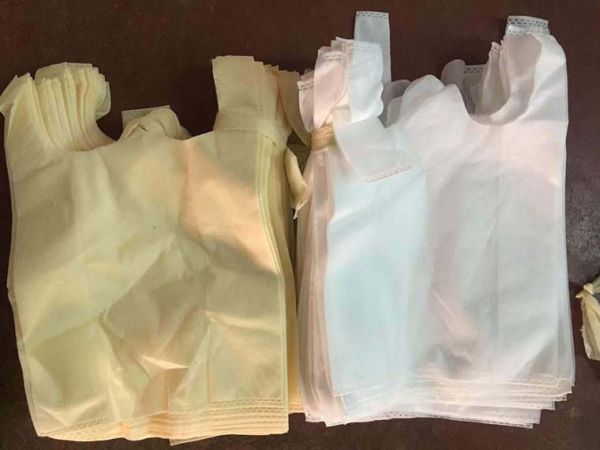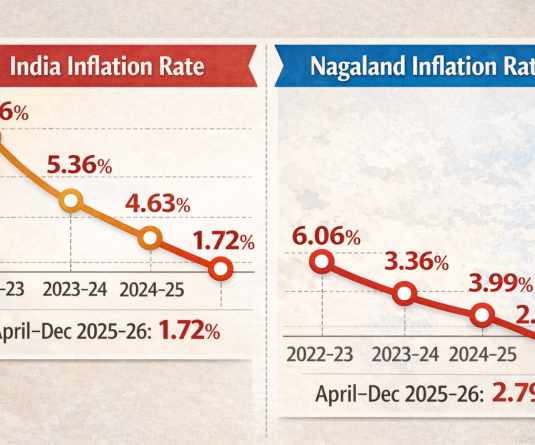Nagaland

Non-woven polypropylene carry bags.
Morung Express News
Mokokchung | September 21
As the ban on single use plastics in Nagaland take effect, and as traders and the people in general make efforts adapt to the ban and try finding feasible alternatives to plastic, the emergence of non-woven polypropylene carry bags also known as PP bags in the market have created confusion despite its clear definition by the competent authorities.
The light translucent carry bags made of synthetic material that has the look and feel of a cloth or paper bag are being rampantly distributed in the market by traders and consumers alike, especially after the ban of single use plastic bags took effect. In Mokokchung, the polypropylene carry bags first appeared in the market after the ban on plastic bags to be effective from September 17 was notified earlier in the month of July.
The state government has in its preliminary notification on the ban on plastics clearly defined single use polypropylene carry bags as one of the banned plastic items. Accordingly, the Mokokchung Municipal Council, in a notification issued on September 13, has also reminded the public that polypropylene bags were banned.
To a query posed by the Watsü Mungdang at a meeting of the Mokokchung District Task Force on restricting plastic use on September 18 last, the Deputy Commissioner of Mokokchung also clarified that polypropylene was banned. He also explained that polypropylene bags were in fact more harmful than polythene bags in that not much research has been done on the former and that its potential threats remained unknown except for the fact that it is made of thermally heated plastic polymer and therefore non-biodegradable.
Amba Jamir of Sustainable Development Forum Nagaland also clarified to The Morung Express that the Delhi High Court has ruled that polypropylene bags were essentially plastic bags. According to media reports, the Delhi High Court has in 2009 ruled that the nature of the bag’s material, which is pure plastic and also not biodegradable, should also be banned like any other plastic bag.
President of Mokokchung Chamber of Commerce & Industry, Tsükti Longkumer has meanwhile called upon the business community as well as the customers not to use the polypropylene carry bags as it was banned for its environmentally harmful nature. He also said that unconfirmed sources point the origin of non-woven polypropylene carry bags to China.
He was also of the opinion that traders and public alike were unaware of the nature of the polypropylene bags and that they were made to believe that they were cloth bags, which is not. He also cited the importance of awareness and sensitization among the masses to dispel the confusion.
MMC Administrator, W. Manpai Phom has informed that implementation of the ban on single use plastic items are in effect now and that defaulters would be penalized as per laid down rules. He has also sought the cooperation of the public and civil society organizations to cooperate with the authorities.
Are PP bags really biodegradable?
For many years, polypropylene carry bags, also known as PP Bags, have been presented as as an alternative to single-use plastic bags saying these bags are biodegradable, hence, don't pose a threat to the environment.
Not exactly! It is rather a bio compostable, claims Professor RN Jagtap, Head, Department of Polymer, Institute of Chemical Technology.
"A biodegradable material is organic material, like the food what you get from the farm. If you throw it in the dump, it will decay, disintegrate and convert into carbon dioxide and moisture. It will not leave any trace behind. But, in the case of the so called biodegradable polymers, when you throw it in the open, it won't disintegrate. It requires specific conditions to disintegrate," Jagtap, was quoted as saying in a report on Indiatimes.com.
In simple terms, it means that if you discard the PP bags in the open, thinking it will decompose it won't. It will be there just like single use plastic, it added.





